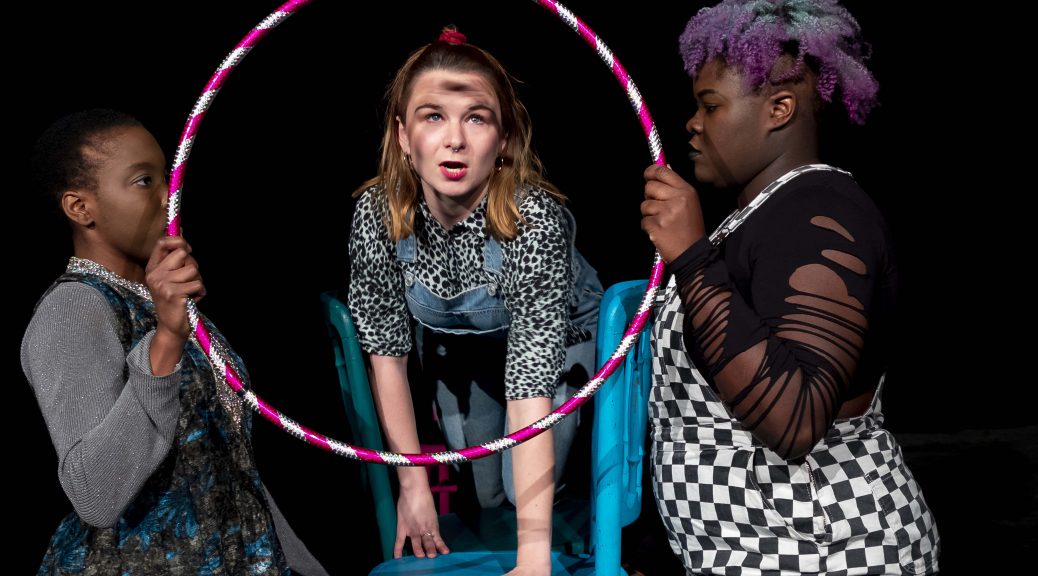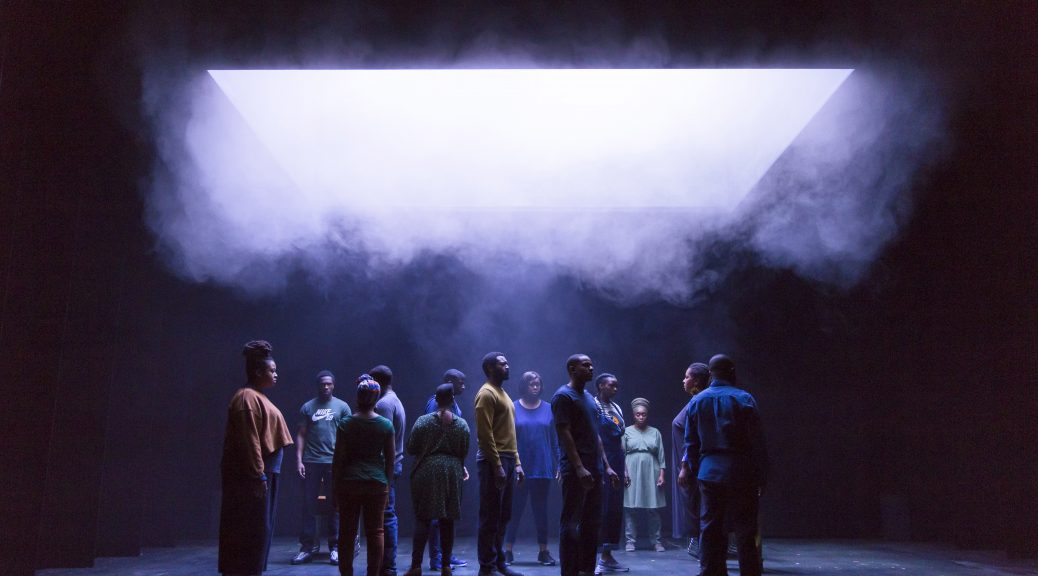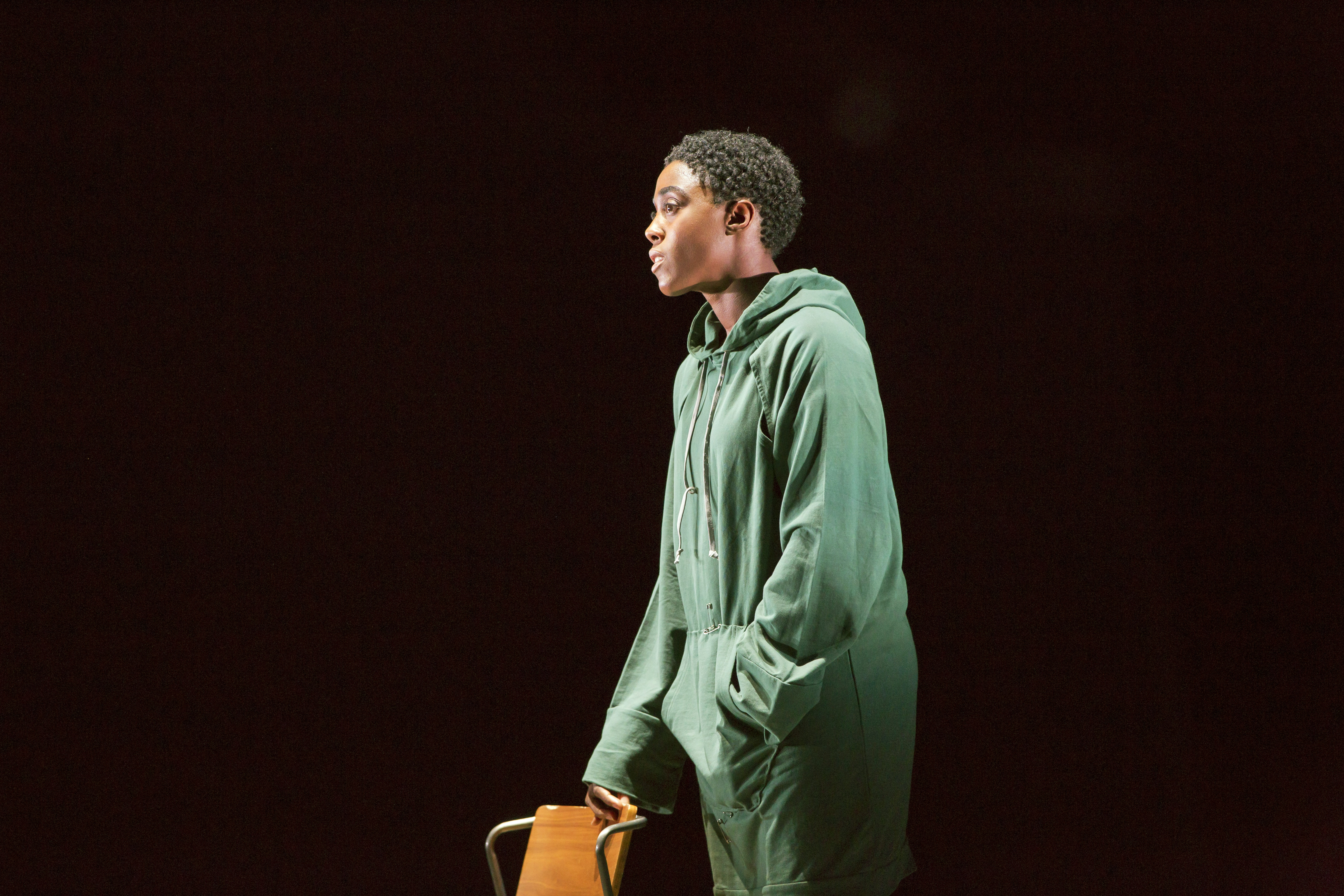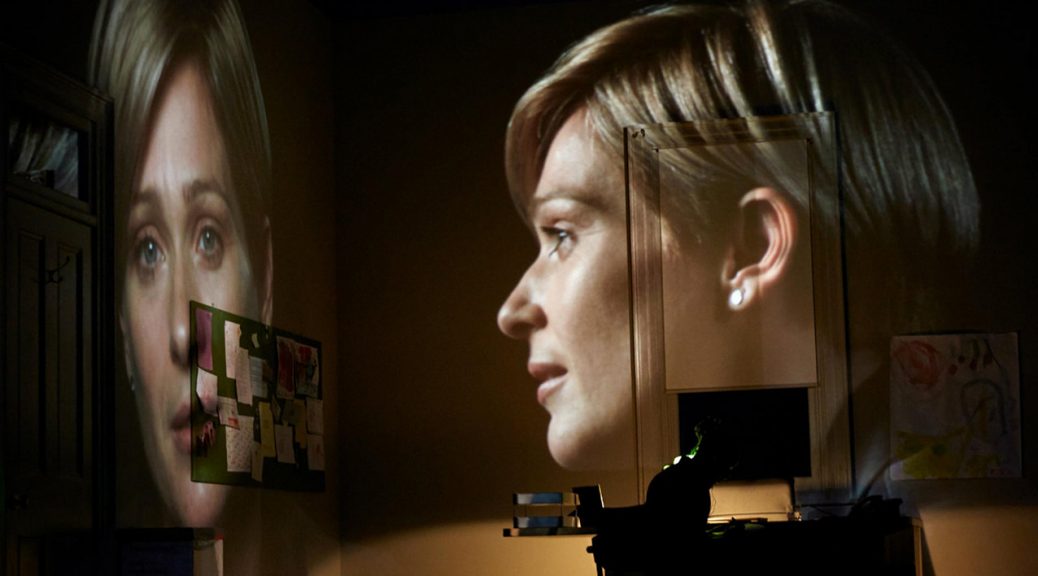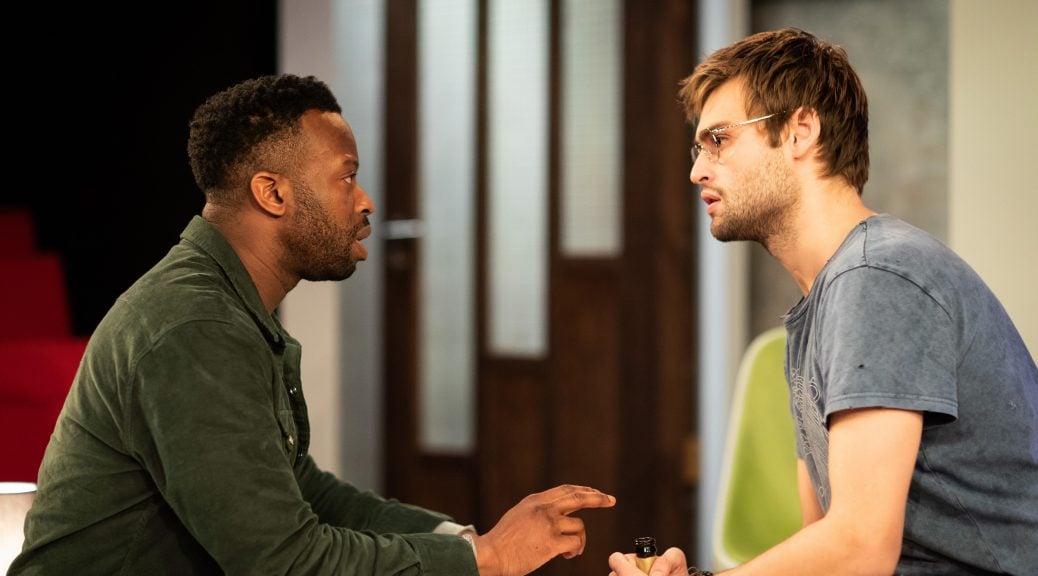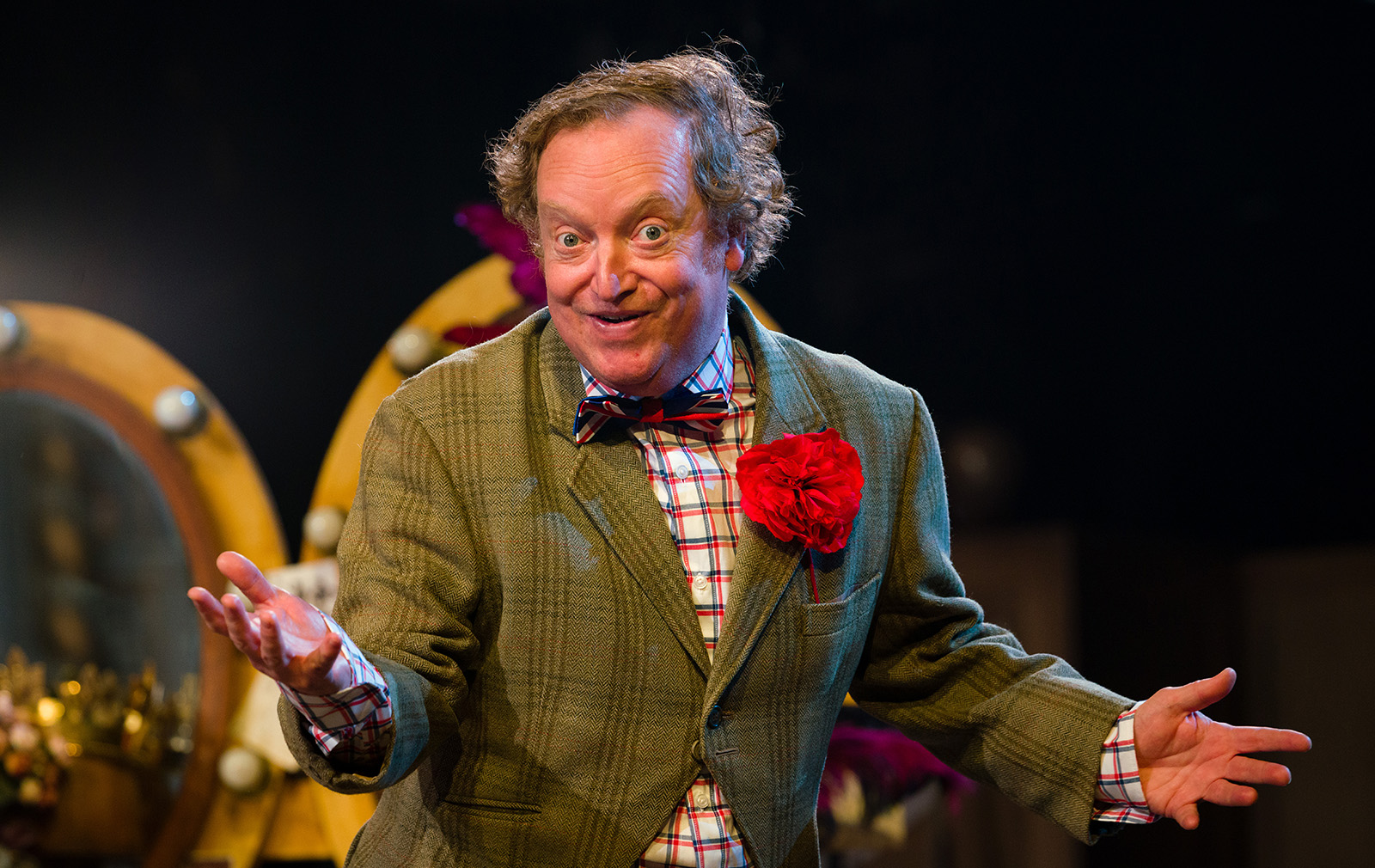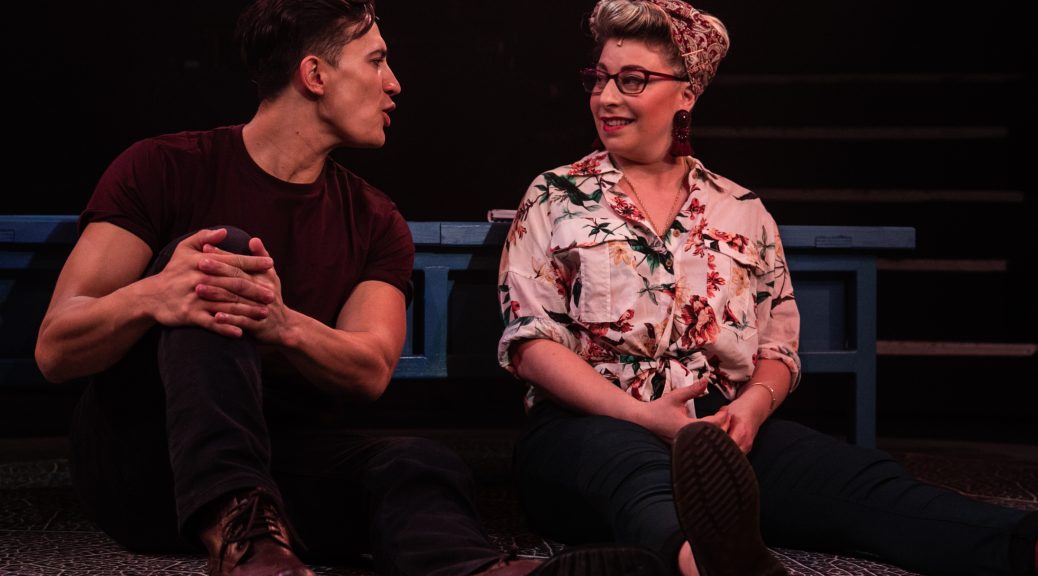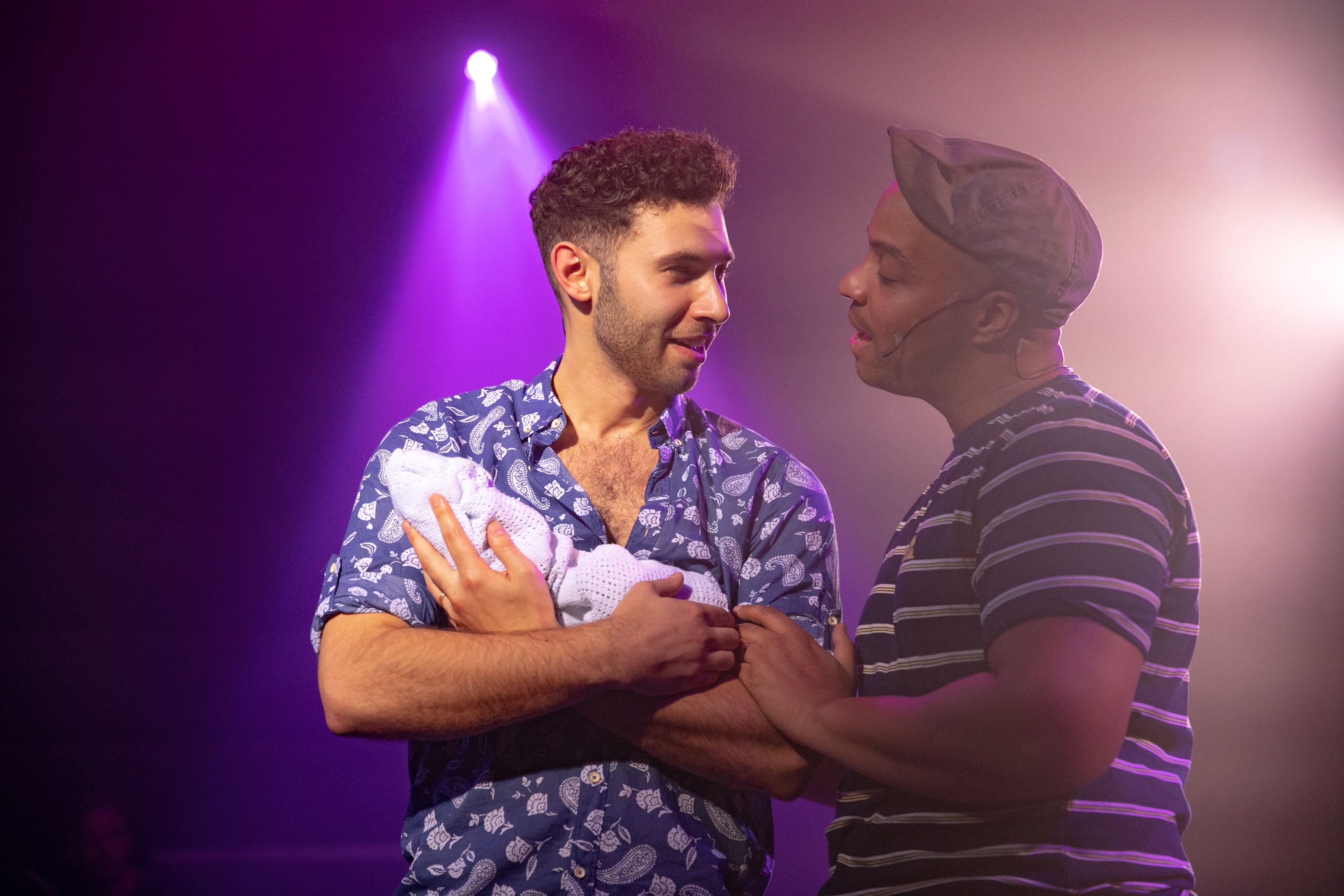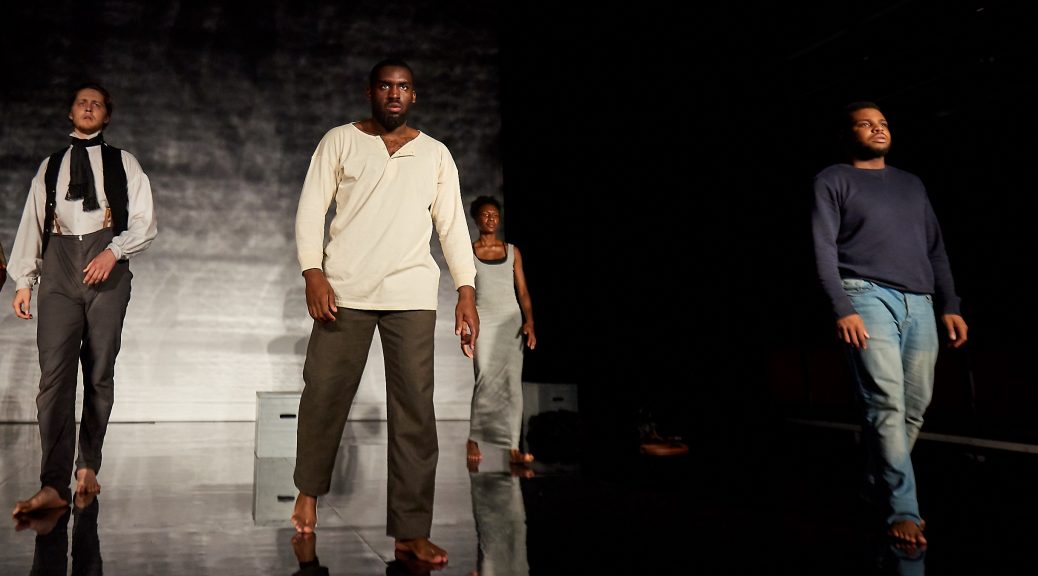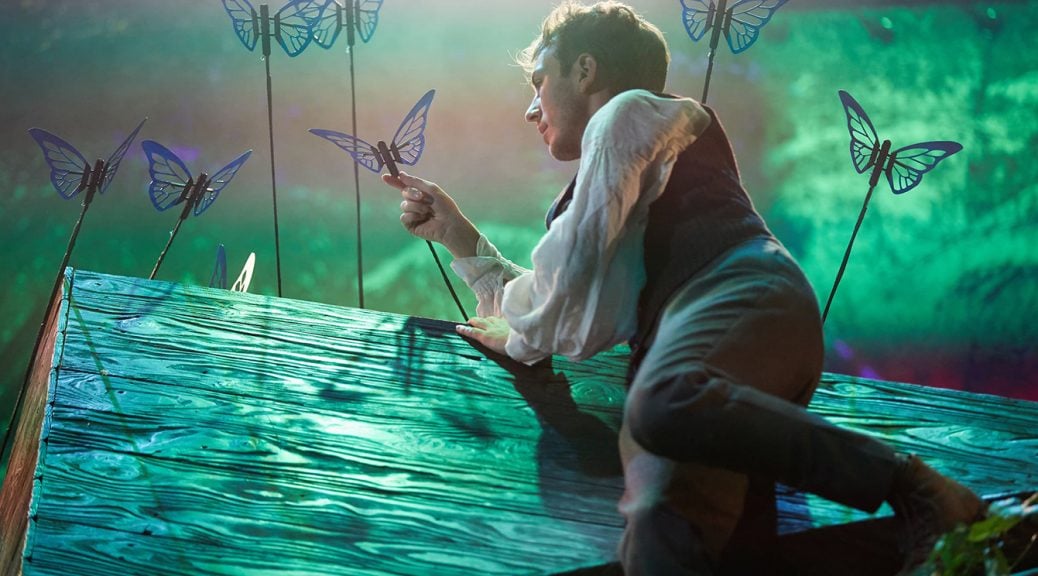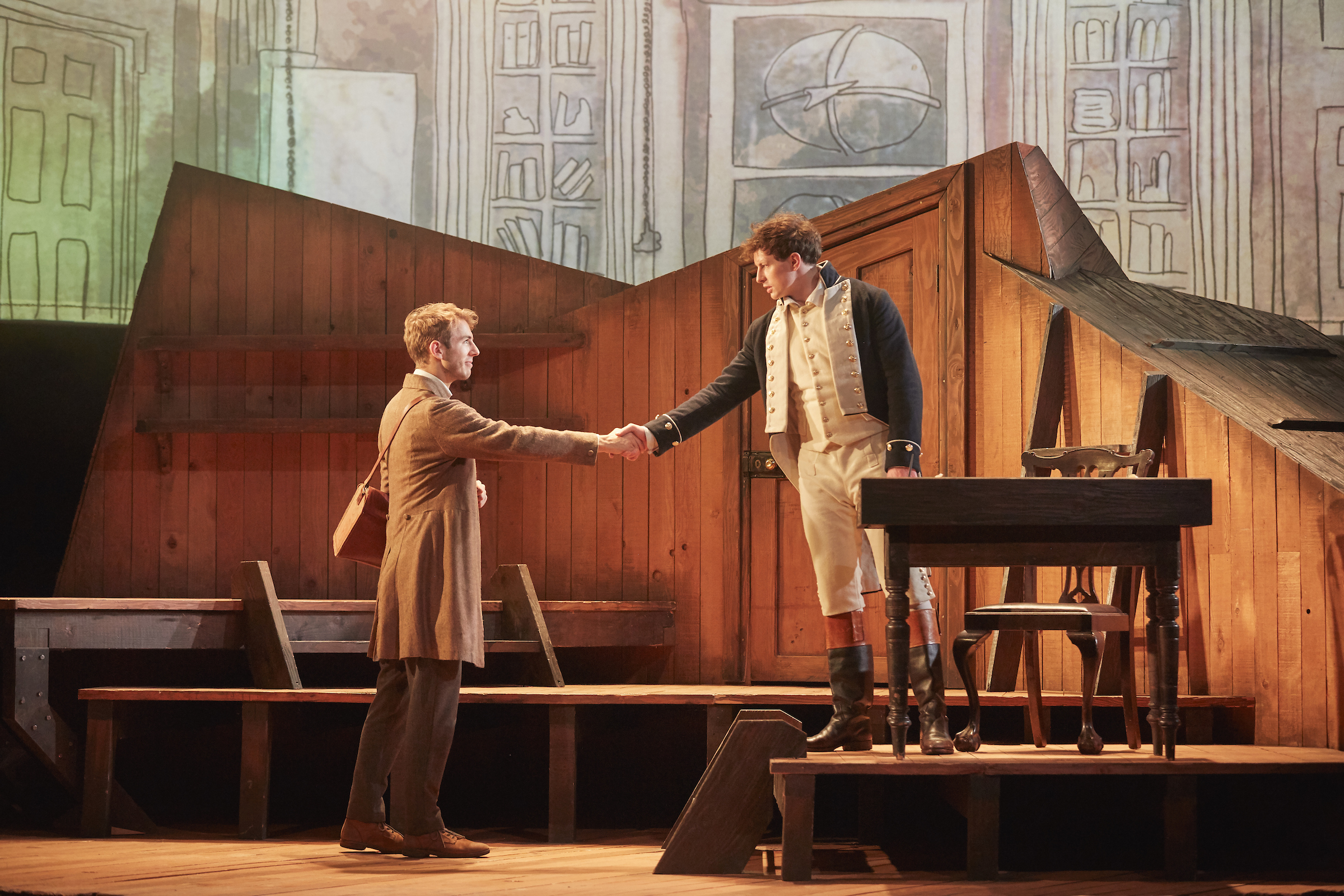This cerebral piece, simply billed as a story told by Chris Goode, is adventurous, exciting and, ultimately, puzzling. It’s a show that uses theatrical conventions expertly and proves to be entertaining. But it is so deliberately destabilising that it’s hard to take away much – avoid it if fables frustrate you.
We start settling down to a something close to a fairy tale, though always for adults. It’s the end of the world and Mirabel is alone… apart from her talking teddy bear. In search of adults, she assembles a gang that includes ghosts and a rock as we journey through an apocalyptic landscape.
All this is beautifully written by Goode, who plays with many a sci-fi trope in his narrative. Simple sentences present complex imagery and are startlingly original, with plenty of humour, too. It’s a long monologue, but Goode’s skills as a performer are excellent and he holds an audience well. Aided by director Rebecca McCutcheon, a set comprising hidden depths by Naomi Dawson, and great lighting design from Lee Curran, Mirabel is wonderfully staged. A section of animation from Lou Sumray is stand-alone strong.
As evocative as the story is – and considering its bizarre touches, that’s a big achievement – judging its effectiveness surely requires the play to have clearer aims. This can’t be an exercise in seeing the world through the eyes of a child as, fantasy aside, Mirabel isn’t believable. Political concerns, such as the environment or consumerism, are oblique (they’re bound to be if you bring in UFOs). Is it an allegory? Maybe: the depths of Mirabel’s loneliness are painfully detailed and her growth during the play gives us plenty to ponder. Yet what the script describes as a coda, a bravura spoken-word section, suggests that pinning his work down wouldn’t please Goode. An explanation for the story is offered, then withdrawn, as chaos encroaches to unpleasant effect.
The world of Mirabel that we are allowed access to is well worth visiting. If you like travel for its own sake, then this is a first-class voyage. I am just not quite sure if the trip has any larger point.
Until 17 November 2018
Photo by The Other Richard



